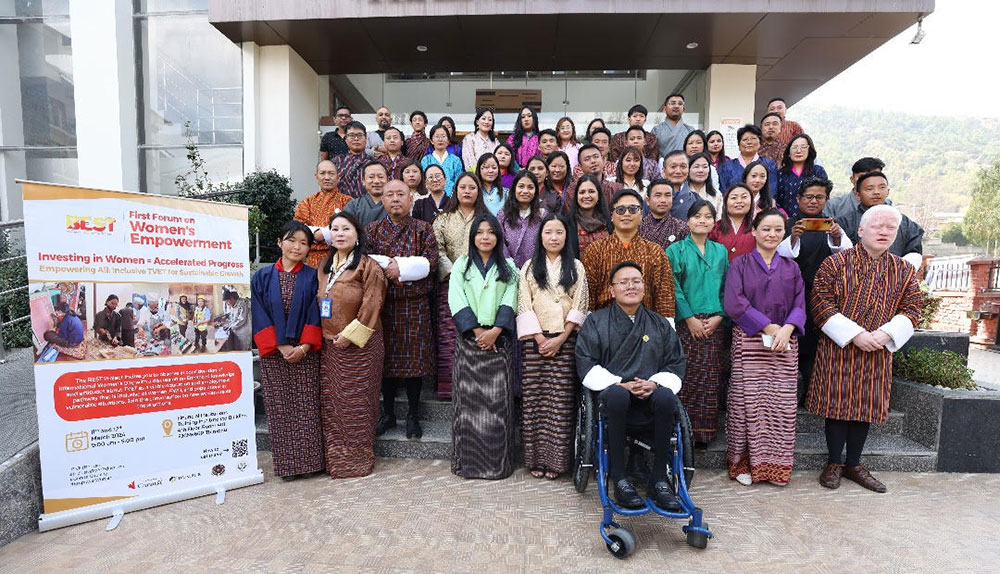KP Sharma
In Bhutan, there’s a growing problem where Technical and Vocational Education and Training (TVET) institutes aren’t doing enough to include everyone, especially women and people with disabilities.
Is it a big deal? Yes, because there is a serious need to train a skilled workforce. But the gap keeps getting bigger.
To address the problems with TVET programmes and to show that TVET is a good option, a two-day forum was held in Thimphu.
Around 50 people took part in the forum.
The Bhutan Education and Skill Training (BEST) forum, in a way, is leading the discussion. The forum brought together people from Technical Training Institutes (TTI), Civil Society Organisations (CSO), the Royal University of Bhutan (RUB), and other international partners.
The main focus of the workshop was on addressing inclusivity challenges, with particular attention given to integrating women, persons with disabilities (PWD), and vulnerable groups.
The varied composition of participants was aimed at raising awareness about the importance and benefits of inclusive TVET in sectors with ample opportunities, the obstacles vulnerable groups encounter in accessing TVET programmes, and suggested action plans to effectively tackle these challenges.
It also aims to cultivate partnerships among different stakeholders to improve inclusivity within Bhutan’s TVET sector.
By bringing together representatives from various organisations, the platform facilitated collaboration and collective action aimed at enhancing inclusive TVET opportunities.
Nalini Andrade, Director of the International Development Institute (IDI) at the Humber Institute of Technology and Advancement in Canada, said that while Bhutan has made significant progress in Technical and TVET sector, there are still opportunities for improvement to make it more appealing and competitive.
“Through this platform, we are supporting the comprehensive reforms of the TVET system,” she added.
Andrade stated that with the establishment of such forums and focused attention to them, Bhutan possesses the potential to reshape the TVET sector into a highly desirable field in the coming years.
Andrade highlighted the commitment to supporting the three pillars: product, people, and place through the project.
Andrade said that the ongoing discussions within the forum would offer invaluable guidance for policymakers and other stakeholders in decision-making and strategic planning related to TVET.
As part of the national TVET reform plan, the initiative includes the introduction of nine new diploma and certification courses.
Lobzang Dorji, the Country Coordinator of Humber College, explained that these courses align with the four key aspects of the project: gender, accessibility, environment, and Gross National Happiness (GNH).
“This forum represents a comprehensive endeavor to address and surmount the obstacles to TVET by convening stakeholders to exchange insights and develop actionable strategies,” he said.
He further stressed its purpose to showcase exemplary approaches aimed at fostering equitable access and opportunities for all, particularly women, persons with disabilities, and marginalised groups.
Puran Gurung, an Associate Lecturer at Norbulling Rigter College, drew attention to a prevailing mindset in Bhutan where TVET is often perceived as solely for male dominance, sidelining other genders and individuals with disabilities.
He attributed it to entrenched social and cultural norms within the society, highlighting that a lack of awareness and understanding about the importance of TVET contributes to these misconceptions.
He stressed the necessity for educational and awareness campaigns to challenge these stereotypes and advocate for inclusivity within the TVET sector.
Humber College, Canada, leads the Inclusive TVET forum in collaboration with the Ministry of Education and Skill Development and RENEW.


